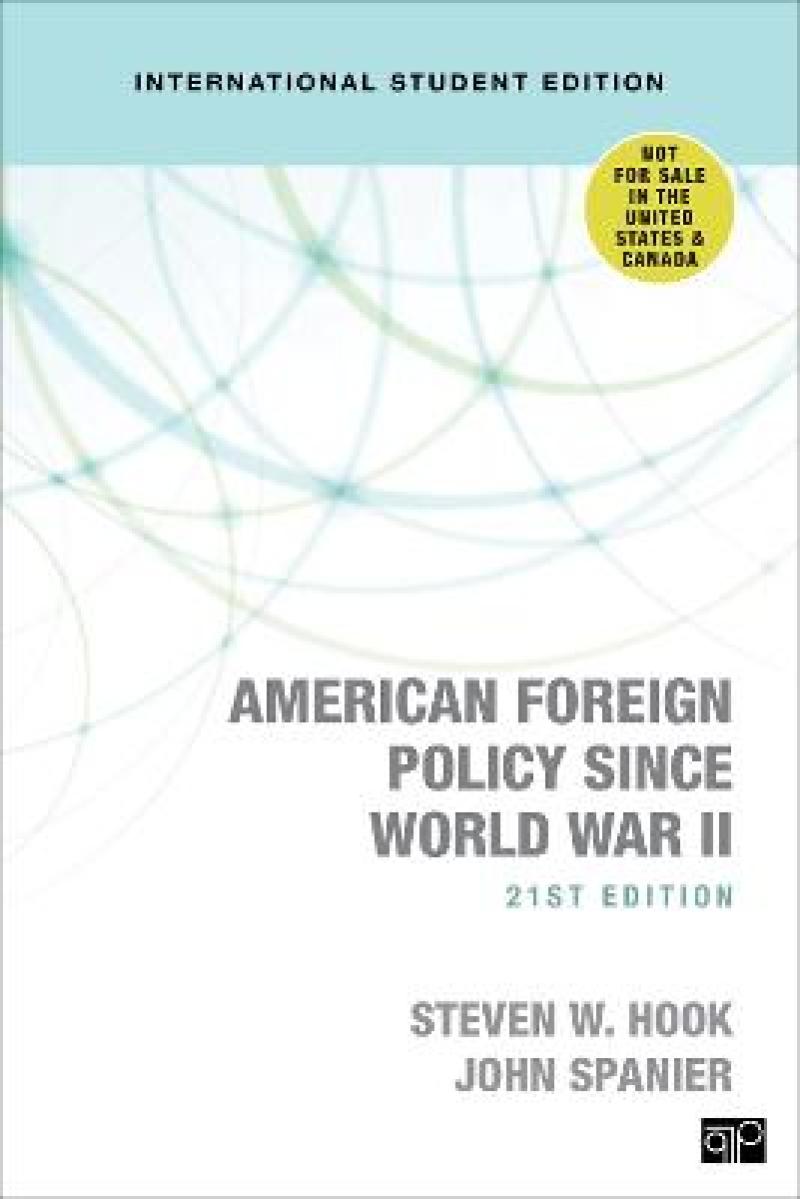American Foreign Policy since World War II has long set the standard in guiding students through the complexities of the field. This twenty-first edition features three new chapters that examine the aftershocks of the Arab Spring and the revival of power politics and discuss the implications of a changing American policy under the Trump presidency. Providing the historical context students need, this book helps them to grasp the functions and frequent dysfunctions of the nation’s foreign policy agenda with historical insight into modern policy context.
Les mer
This twenty-first edition of American Foreign Policy Since World War II features three new chapters that examine the aftershocks of the Arab Spring and the revival of power politics and discuss the implications of a changing American policy under the Trump presidency.
Les mer
Preface
Chapter 1 The American Approach to Foreign Policy
Learning from Experience
The Roots of American Primacy
Destiny and Moral Mission
A Skeptical View of Power Politics
U.S. Exceptionalism and Exceptions
Part I: The Cold War
Chapter 2 From World War to Cold War
American Wartime Illusions
The Russo-Soviet Approach to Foreign Policy
Soviet Expansion after World War II
The Strategy of Containment
Declaring Cold War: The Truman Doctrine
Chapter 3 Containment: From Theory to Practice
New Economic and Military Structures
Reviving the Western European Allies
Confronting Revolution in East Asia
Domestic Pressures for a Global Crusade
Eisenhower’s “New Look” in Foreign Policy
Chapter 4 North-South Tensions and the Vietnam War
Developing Countries in the Crossfire
Regional Conflicts in Latin America
Vietnam: The Limits of Containment
Chapter 5 Détente and World-Order Politics
Managing the Superpower Rivalry
Carter’s Quest for World Order
War and Peace in the Middle East
Blowback and the Soviet Power Play
Chapter 6 Breakthroughs in the Superpower Struggle
Reagan’s Rhetorical Offensive
Expanding U.S. Military Forces
“Rollback” in Developing Countries
Alliance Politics in the Late Cold War
From Confrontation to Conciliation
Chapter 7 The End of the Cold War
Bush’s Management of the Soviet Collapse
Endgame: The Collapse of the Core
Reasons for the Soviet Collapse
A Final Appraisal
Part II: The New World “Disorder”
Chapter 8 Old Tensions in a New Order
Great Expectations after the Cold War
Clinton’s Embrace of “Geoeconomics”
Sources of Global Fragmentation
War and Peace in the Middle East
The Plight of “Failed States”
Lessons from the Regional Crises
Chapter 9 The Shifting European Landscape
Western Europe: From Community to Union
Jump-Starting Democracy in Eastern Europe
NATO’s Search for a New Mission
“Ethnic Cleansing” in the Balkans
U.S.-Russian Relations under Stress
Chapter 10 America under Fire
Strains in the Unipolar Order
The Growing Threat of “Sacred Terror”
Terror in the Morning Sky
Elements of Counterterrorism
A Grand Strategy of Primacy and Preemption
Chapter 11 Hot Wars in Afghanistan and Iraq
The Afghanistan Campaign
Renewed Hostilities against Iraq
Flashbacks to Vietnam
Chapter 12 Aftershocks of the Arab Spring
Obama’s Call for Renewal
Mass Demands for Democracy
Iraq’s Collapse and the ISIS Challenge
The Afghan Muddle
Chapter 13 The Revival of Power Politics
Cold War II with Russia
The Powers and their Calculations
China’s Pacific Challenge
Israel’s Shadow in the Middle East
Ongoing Threats of Nuclear Proliferation
Chapter 14 The End of the American Century?
Internal Threats to Democracy
Trump and Turmoil
Rethinking American Power
Appendixes
Les mer
Produktdetaljer
ISBN
9781544326856
Publisert
2018-04-04
Utgave
21. utgave
Utgiver
Vendor
CQ Press
Vekt
690 gr
Høyde
228 mm
Bredde
152 mm
Aldersnivå
UU, 05
Språk
Product language
Engelsk
Format
Product format
Heftet
Antall sider
488
